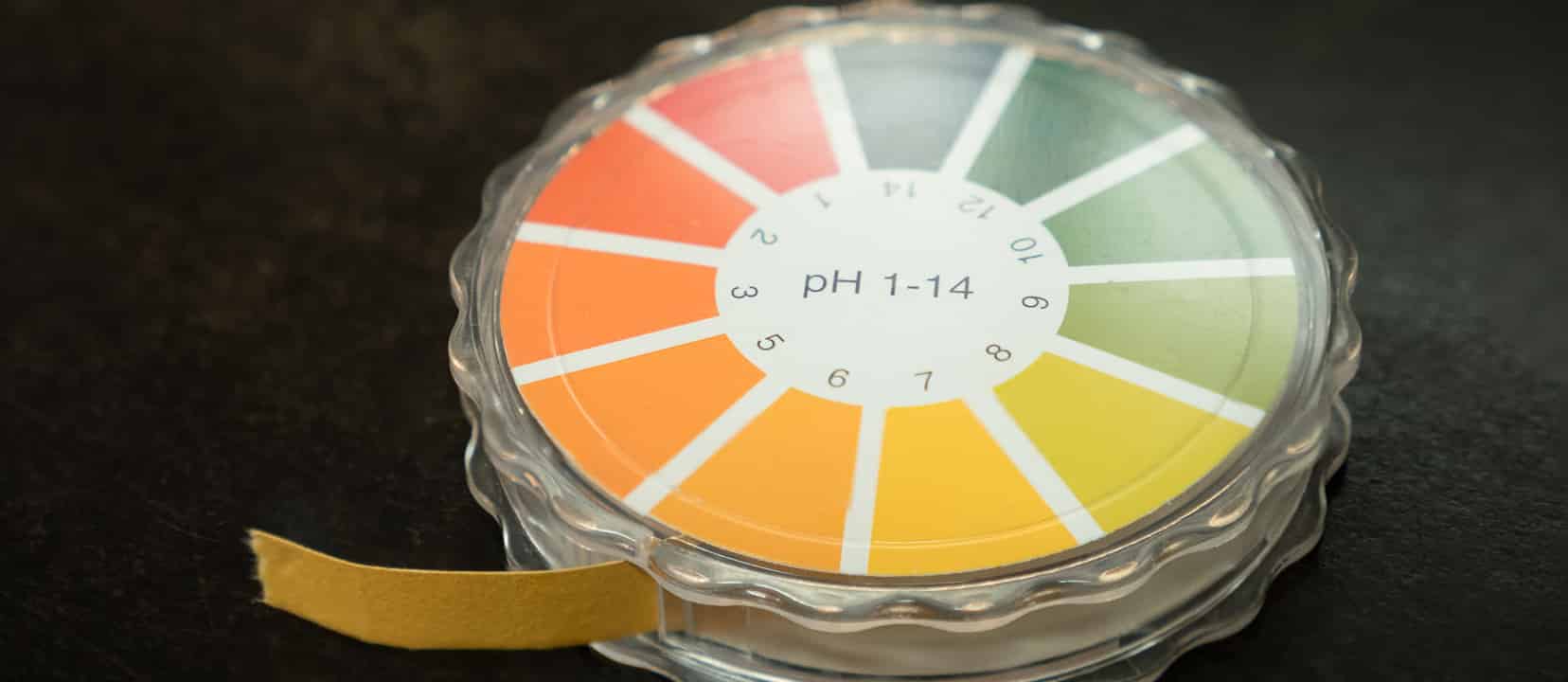More than 30 years ago, an idea was put forward that high colonic pH promoted colorectal cancer. A high colonic pH may promote the creation of carcinogens from bile acids, a process that is inhibited once you get below a pH of about 6.5. This is supported by data which show those at higher risk for colon cancer may have a higher stool pH, and those at lower risk have a low pH. There was a dramatic difference between the two groups, with most of the high risk group over pH 8, and most of the low risk group under pH 6 (see Stool pH and Colon Cancer).
This may help explain the 50-fold lower rates of colon cancer in Africa compared to America. The bacteria we have in our gut depends on what we eat. If we eat lots of fiber, then we preferentially feed the fiber eating bacteria, which give us back all sorts of health promoting substances like short-chain fatty acids that have anti-inflammatory and anti-cancer properties. More of these organic acids were found in the stools of native Africans than African Americans. More acids, so lower pH. Whereas putrefactive bacteria, eating animal protein, are able to increase stool pH by producing alkaline metabolites like ammonia.
The pH of the stools of white versus black children in Africa was compared. Children were chosen because you can more readily sample their stools, particularly the rural black schoolchildren who were eating such high fiber diets—whole grains, legumes, nuts, vegetables, fruits, and wild greens—that 90% of them could produce a stool on demand. Stuffed from head to toe with plants, they could give you a stool sample at any time, just as easy as getting a urine sample. It was hard to even get access to the white kids, though, who were reluctant to participate in such investigations, even though they were given waxed cartons fitted with lids, while all the black kids got was a plate and a square of paper towel.
The researchers found significantly lower fecal pH in those eating the traditional, rural plant-based diets compared to those eating the traditional Western diet, who were eating far fewer whole plant foods than the black children. But, remove some of those whole plant foods, like switch their corn for white bread for just a few days and their stool pH goes up, and add whole plant foods like an extra five to seven servings of fruit every day, and their stool pH goes down even further and gets more acidic. It makes sense because when you ferment fruits, veggies, and grains, they turn sour, like vinegar, sauerkraut, or sourdough, because good bacteria like lactobacillus produce organic acids like lactic acid. Those who eat a lot of plants have more of those good bugs. So, using the purple cabbage test highlighted in my video, Testing Your Diet with Pee & Purple Cabbage, we want blue pee, but pink poo.
If you compare the fecal samples of those eating vegetarian or vegan to those eating standard diets, plant-based diets appear to shift the makeup of the bacteria in our gut, resulting in a significantly lower stool pH, and the more plant-based, the lower the pH dropped. It’s like a positive feedback loop: fiber-eating bacteria produce the acids to create the pH at which fiber-eating bacteria thrive while suppressing the group of less beneficial bugs.
It might take even as little as two weeks to bring stool pH down on a plant-based diet. In a study published in the British Journal of Cancer, a dozen volunteers carefully selected for their trustworthiness and randomized to sequentially go on regular, vegetarian, or vegan diets and two weeks in, a significant drop in fecal pH was achieved eating completely plant-based.
But there are differing qualities of plant-based diets. For example, the two groups followed in the study I mentioned earlier had dramatically different stool pH, yet both groups were vegetarian. The high risk group was eating mostly refined grains, very little fiber, whereas the low risk group was eating whole grains and beans, packed with fiber for our fiber-friendly flora to munch on.
Just as a “reduction of high serum cholesterol contributes to the avoidance of coronary heart disease,” a fall in the fecal pH value may contribute to the avoidance of bowel cancer. Similarly, eating more whole plant foods may also help us avoid bowel cancer, through the same means.
More on colon cancer prevention in:
- Should We All Get Colonoscopies Starting at Age 50?
- What to Take Before a Colonoscopy
- Phytates for the Prevention of Cancer
- Phytates for the Treatment of Cancer
- Turmeric Curcumin and Colon Cancer
- Burkitt’s F-Word Diet
- Resistant Starch and Colon Cancer
In health,
Michael Greger, M.D.
PS: If you haven’t yet, you can subscribe to my free videos here and watch my live, year-in-review presentations:
- 2012: Uprooting the Leading Causes of Death
- 2013: More Than an Apple a Day
- 2014: From Table to Able: Combating Disabling Diseases with Food
- 2015: Food as Medicine: Preventing and Treating the Most Dreaded Diseases with Diet
- 2016: How Not To Die: The Role of Diet in Preventing, Arresting, and Reversing Our Top 15 Killers
